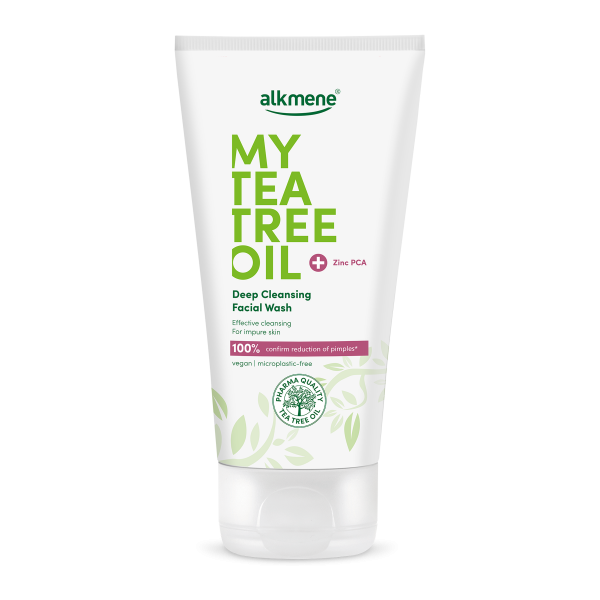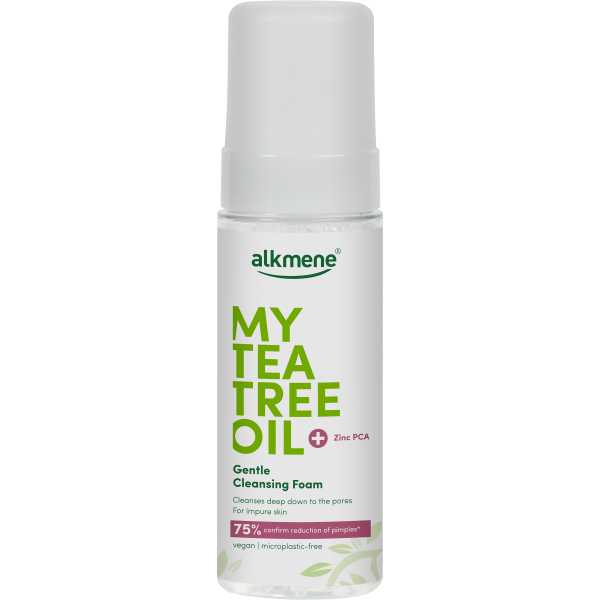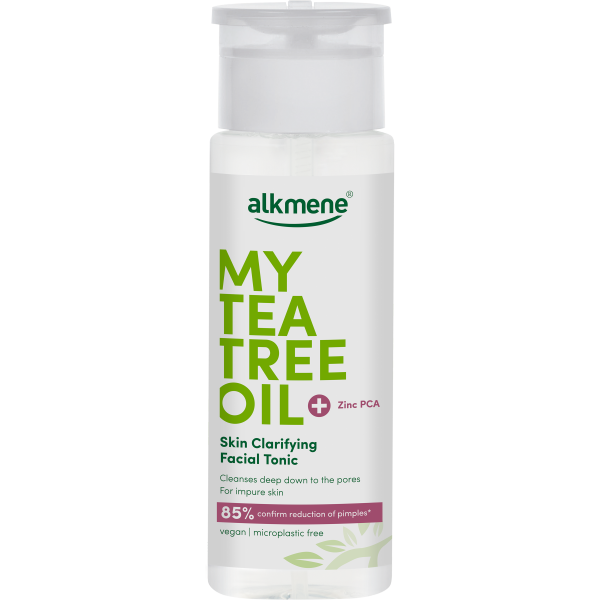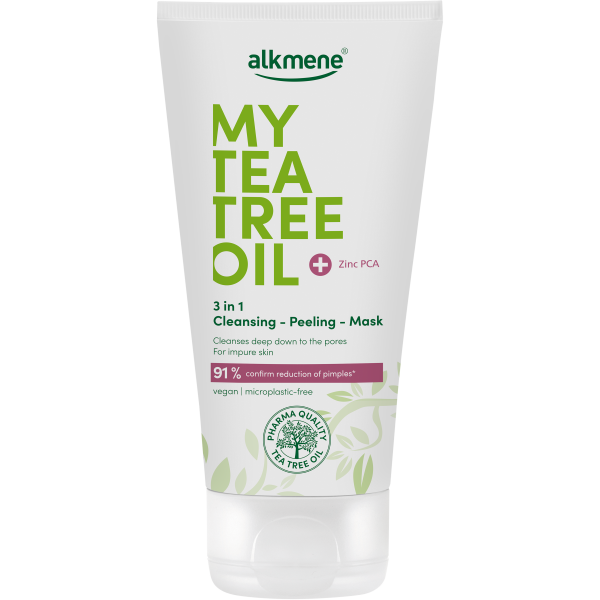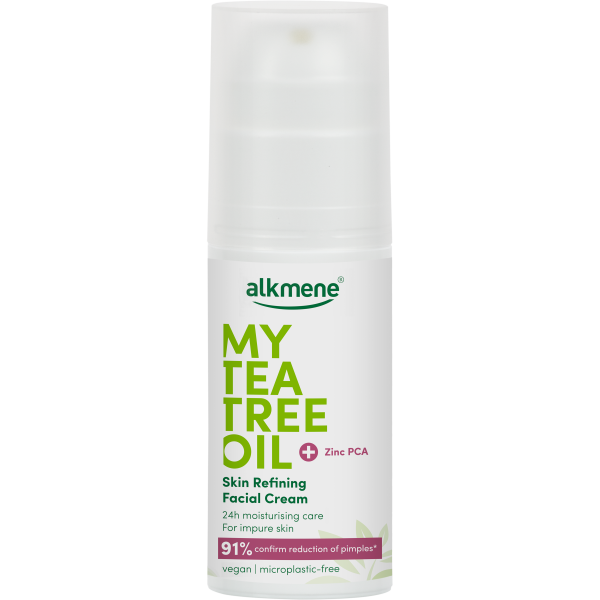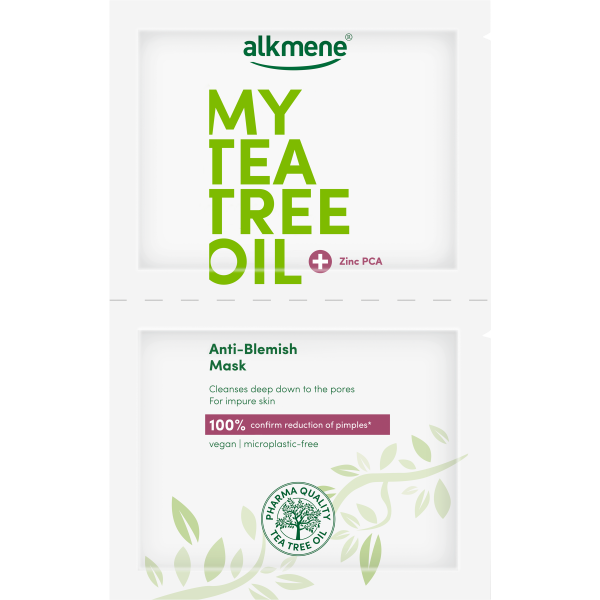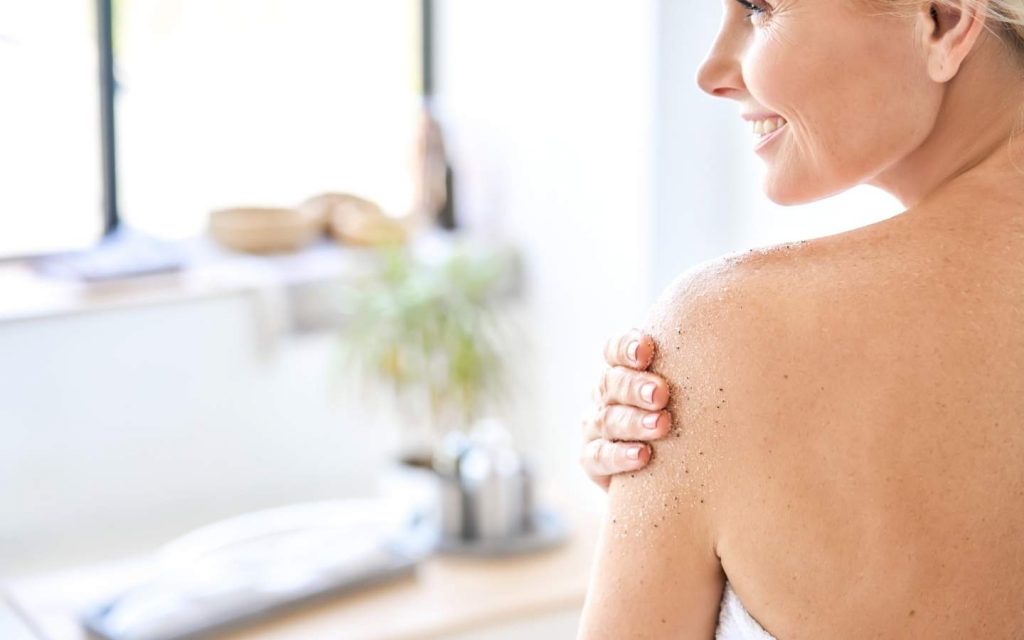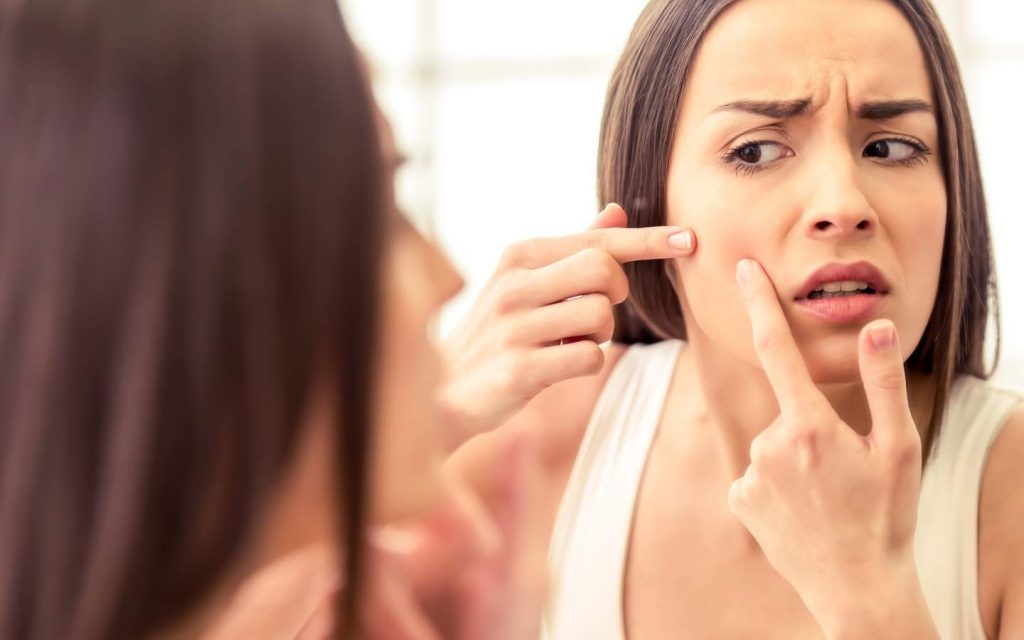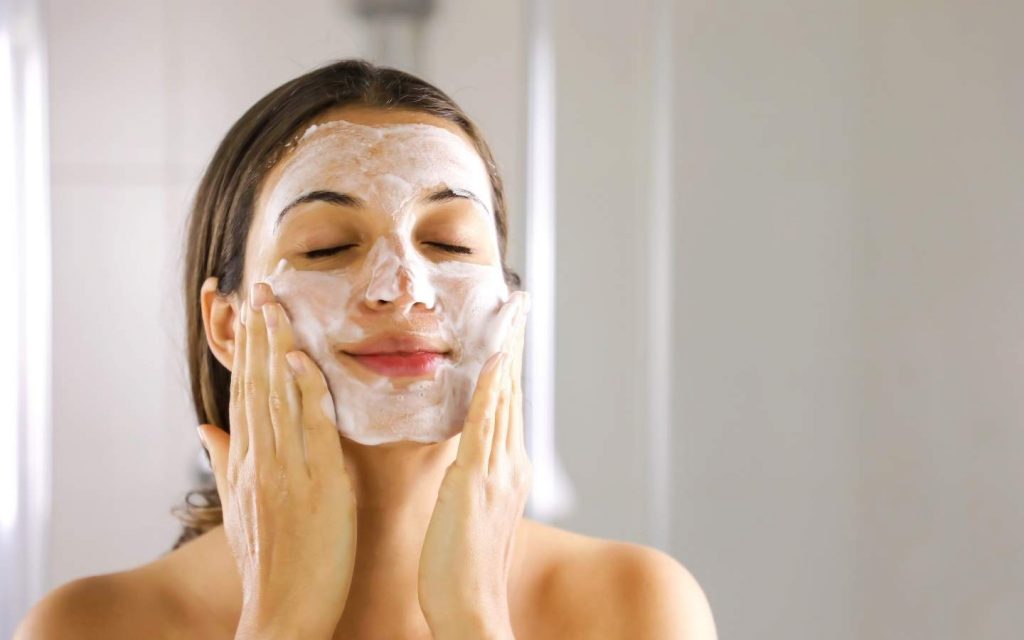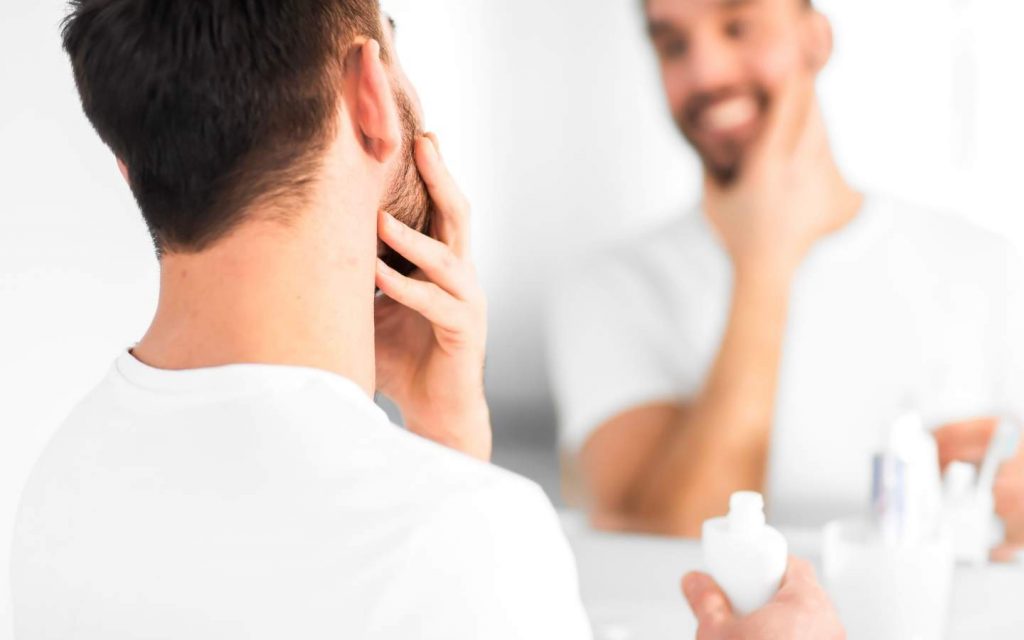
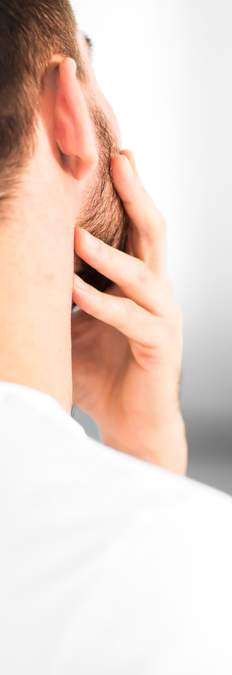
Even after puberty, some men are still prone to pimples, blemishes or acne – also called late acne in adulthood.
Although skin blemishes are something quite natural, they often gnaw at self-confidence.
Find out here what the possible causes of blemishes, pimples and acne are and how you can improve your skin’s appearance with a few simple tips.
What are the differences between men's and women's skin?
What are the differences between men’s and women’s skin and why does impure men’s skin need special care in the first place?
Gender-specific hormones such as testosterone cause men’s and women’s skin to differ structurally.
Men’s skin does not contain more sebaceous glands than women’s skin, but it does contain larger ones. Therefore, there is generally an increased production of sebum. In addition, the male sex hormones, androgens, provide increased glandular function. Therefore, men generally tend to have more quickly oily skin than women.
In addition, keratinization is stronger in men’s skin and the upper skin layer, the epidermis, is 15-24% thicker. It also contains more collagen and therefore appears firmer.
In areas of the skin rich in sebaceous glands, increased sebum production and above-average keratinization often result in impurities. The increased sebum produced here cannot drain away due to the stronger cornification and accumulates in the skin, clogging the pores.
So to avoid pimples, acne and impurities in the affected areas such as the face, chest, back and shoulder area, proper care is necessary.
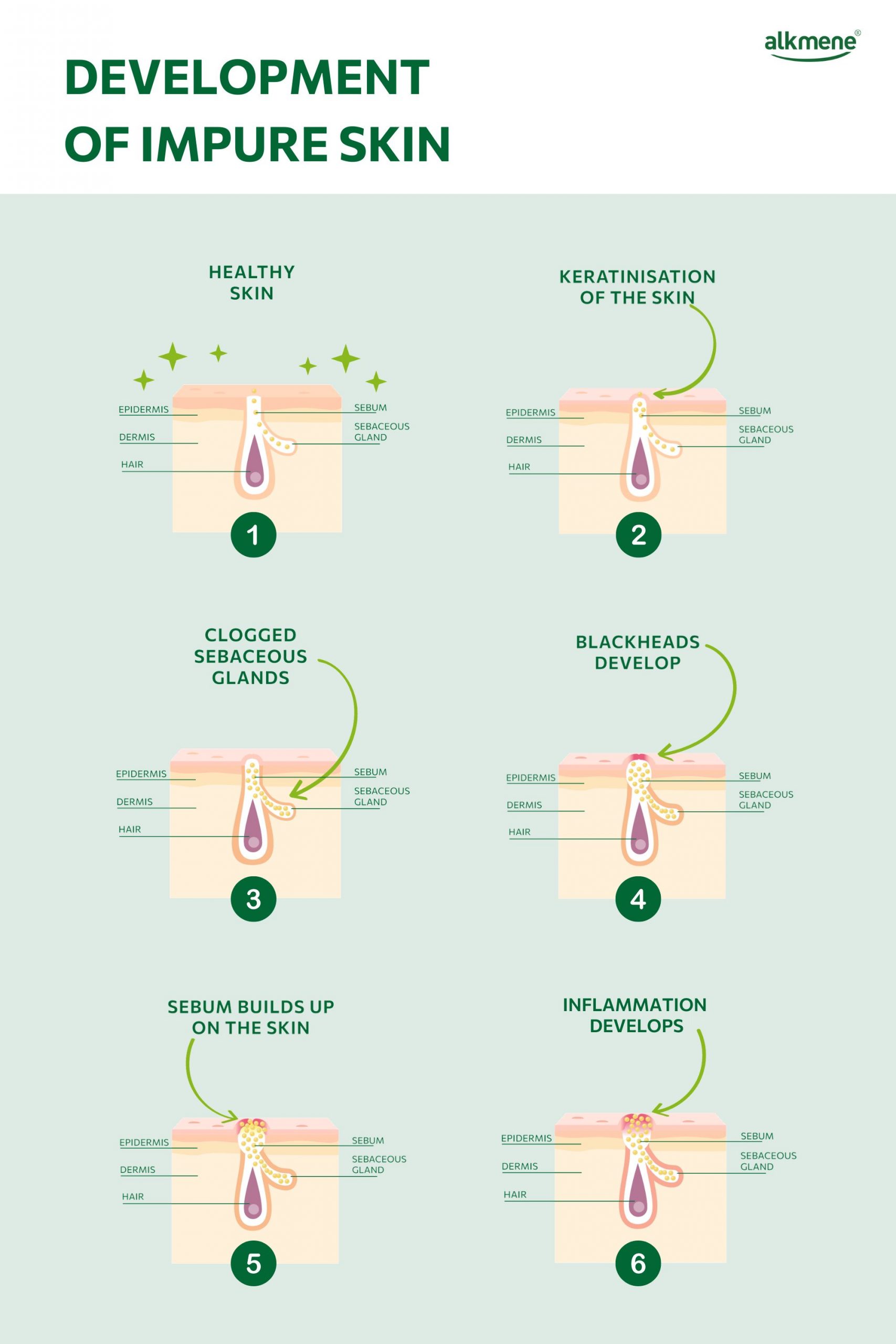
Suitable skin care for men
What should men consequently consider when it comes to skin care?
For men, a particularly rich skin care is generally not necessarily suitable, because the sebum content in the life of a man is consistently high. Men’s skin thus does not necessarily become low in sebum as they age, unlike women’s skin. Therefore, rich formulations with fats and heavy oils are often unsuitable for men’s skin. Optimal is therefore a care that provides sufficient moisture, but not too greasy.
Facial care for men should be as light as possible overall, yet moisturizing.
You should not fall back on your wife’s or girlfriend’s cosmetic products out of convenience, but on non-greasy formulations suitable for your own skin. Water-binding and moisturizing active ingredients such as PCA are ideally suited for this purpose.
These also counteract the age-related loss of moisture in the skin.
Alcohol-based solutions are often popular among men with skin blemishes – these should be avoided, as they destroy the healthy skin’s protective layer. An alcohol concentration of 20% should not be exceeded in any case.
Causes of impure skin in men
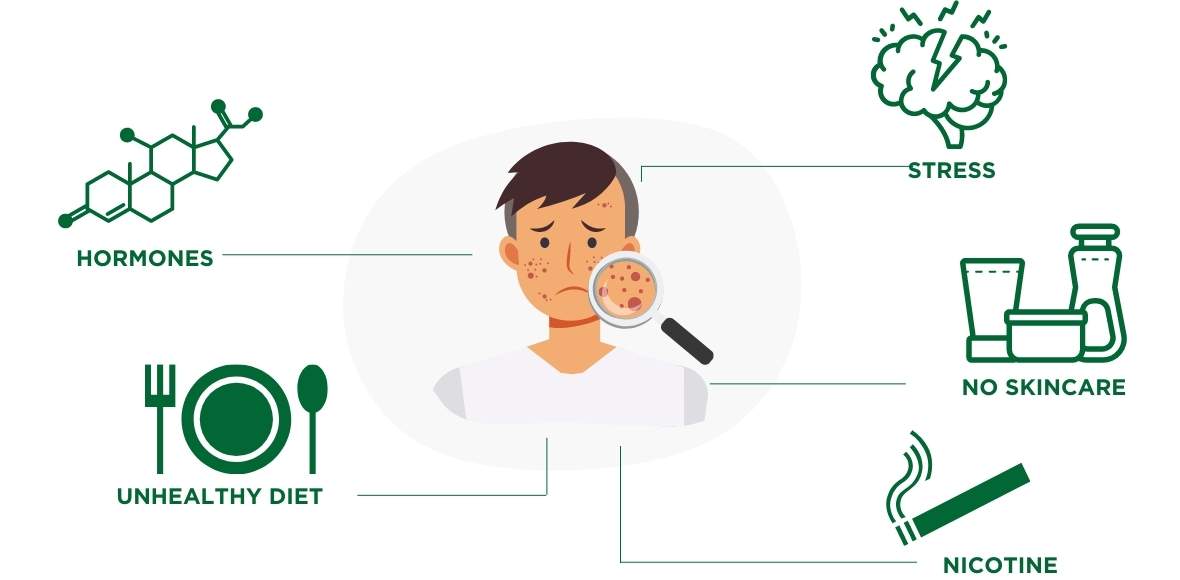
Blemished skin, pimples and acne can have various causes. To get rid of them as quickly as possible, you can follow some simple tips.
Tips against impure skin in men
To remove excess sebum, dirt and sweat and unclog your pores, you should cleanse your skin regularly, once or twice a day. A cleansing gel or foam is suitable for this purpose. Even if such cleansing products are often declared as facial care, they can of course also be used for pimples and acne in other skin areas such as the back, chest or shoulder area.
Regular exfoliation helps to remove dead skin flakes and thus prevent clogged pores. Facial care products against acne also help on all other affected skin areas.
To provide the skin with sufficient moisture, a light cream or lotion should always be used after cleansing. This should be moisturizing but not too rich.
A healthy lifestyle can also contribute significantly to skin health. Getting enough exercise and sleep, drinking plenty of water and eating a healthy diet can all have a positive effect on the appearance of the skin. In addition, the consumption of alcohol, sugar and nicotine has an impact on the condition of your skin – abstaining from them can improve it.
Textiles such as towels and pillowcases should be changed regularly to avoid smear infections caused by bacteria. For blemished skin on the body, it may help to opt for clothing made of cotton or breathable natural fibers.
In the case of persistently bad skin, it is also advisable to visit a dermatologist, who may be able to determine the cause and, if necessary, initiate the appropriate treatment.

